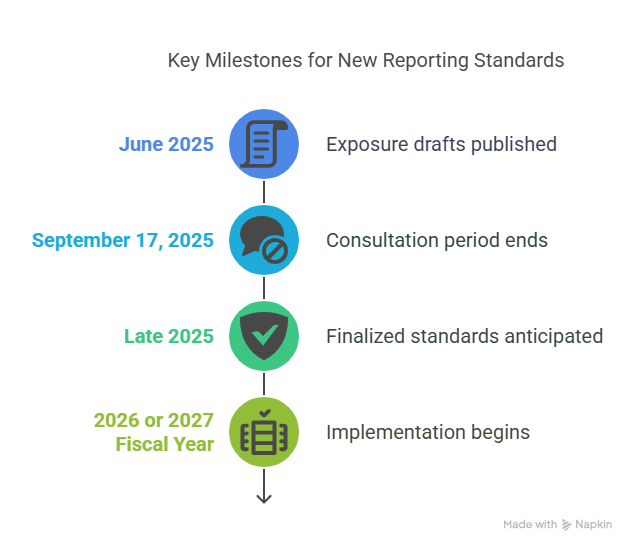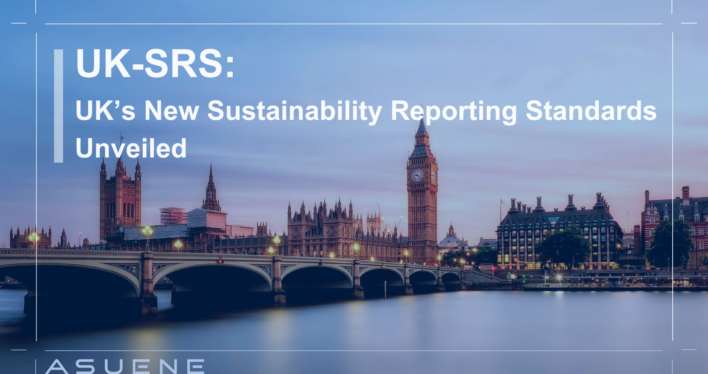- Article Summary
-
What is SRS?
Sustainability Reporting Standards (SRS) are a set of guidelines designed to enhance transparency and accountability regarding corporate Environmental, Social, and Governance (ESG) practices. In alignment with global sustainability reporting initiatives led by the International Sustainability Standards Board (ISSB), the UK’s updated Sustainability Reporting Standards (SRS), effective from 2025, represent a significant advancement toward consistent and comprehensive ESG disclosures. These updates carry major implications for multinational corporations, especially those headquartered or significantly operating in the US and Europe. Companies particularly impacted include large publicly listed entities, businesses in high-impact sectors (finance, manufacturing, energy, agriculture, mining), and international corporations with substantial market presence in the UK. This section outlines the purpose, scope, and implications of the UK’s updated SRS and explains the essential compliance strategies for affected organizations.
Understanding the 2025 UK Sustainability Reporting Standards (SRS)
The 2025 UK Sustainability Reporting Standards represent a significant evolution aimed at reinforcing corporate transparency in ESG metrics. Under these updated standards, companies must disclose specific information, including:
- Climate-related risks and opportunities, aligned explicitly with the framework established by the Task Force on Climate-related Financial Disclosures (TCFD).
- Detailed reporting on biodiversity impacts, incorporating global biodiversity frameworks such as the Taskforce on Nature-related Financial Disclosures (TNFD).
- Comprehensive disclosures on social factors, including labor practices, community impact, and diversity and inclusion initiatives, with clearly defined benchmarks.
- Governance practices including board oversight, executive accountability, ethics, and compliance measures.
- Assurance reports from independent third-party audits verifying the accuracy and reliability of ESG disclosures.
These disclosures will provide stakeholders with a thorough understanding of corporate sustainability practices and their real-world impacts.

Implementation Timeline
As of June 2025, key milestones in the UK’s Sustainability Reporting Standards include:

Companies should remain attentive to these developments and begin preparations to ensure timely compliance.
Comparison: UK’s Updated SRS vs. EU’s CSRD and US SEC Proposals
Understanding how the UK’s revised SRS aligns or diverges from other international reporting standards is crucial for global businesses:
| Criteria | UK SRS (2025) | EU CSRD | US SEC Proposals |
|---|---|---|---|
| Climate Disclosure | Comprehensive, TCFD-aligned | Comprehensive, TCFD-aligned | Primarily financial materiality focus |
| Biodiversity Reporting | Explicit and detailed | Explicit and nature-focused | Limited biodiversity details |
| Social Factors | Detailed mandatory criteria | Extensive mandatory criteria | Moderate focus, limited details |
| Governance & Audit | Strong audit and verification | Strong audit and verification | Moderate verification requirements |
The comparison table highlights the UK’s proactive approach, especially in biodiversity and social governance. Businesses operating internationally must now navigate an increasingly complex regulatory landscape where alignment and integration of multiple standards may be necessary. It is crucial for global corporations to develop robust and flexible ESG frameworks capable of meeting diverse reporting requirements to avoid redundancy and enhance efficiency.
Strategic Implications for Global Businesses
These changes require businesses to reassess and adapt their ESG strategies and reporting processes. Essential steps for companies include reviewing and updating internal ESG reporting frameworks to ensure alignment with UK SRS requirements. Companies should also enhance data collection and monitoring systems for accurate biodiversity, climate, and social disclosures. Engaging third-party verification providers early will streamline audit processes and ensure compliance. Additionally, incorporating SRS considerations into broader risk management strategies will help businesses anticipate and navigate regulatory developments across other jurisdictions.
Businesses proactively adapting to these evolving requirements will be positioned advantageously against their peers in global sustainability rankings and investor evaluations.
Conclusion
The UK’s updated Sustainability Reporting Standards mark a critical turning point for ESG reporting, significantly influencing global corporate compliance landscapes. Companies in the US, EU, and elsewhere must closely follow these regulatory changes and adapt swiftly to maintain competitiveness and compliance. Strategic foresight and robust preparedness will prove essential for navigating this enhanced sustainability reporting era, ultimately benefiting corporate reputation, stakeholder trust, and long-term resilience.
Why Work with ASUENE Inc.?
Asuene is a key player in carbon accounting, offering a comprehensive platform that measures, reduces, and reports emissions, including Scope 1-3. Asuene serves over 10,000 clients worldwide, providing an all-in-one solution that integrates GHG accounting, ESG supply chain management, a Carbon Credit exchange platform, and third-party verification.
ASUENE supports companies in achieving net-zero goals through advanced technology, consulting services, and an extensive network.


